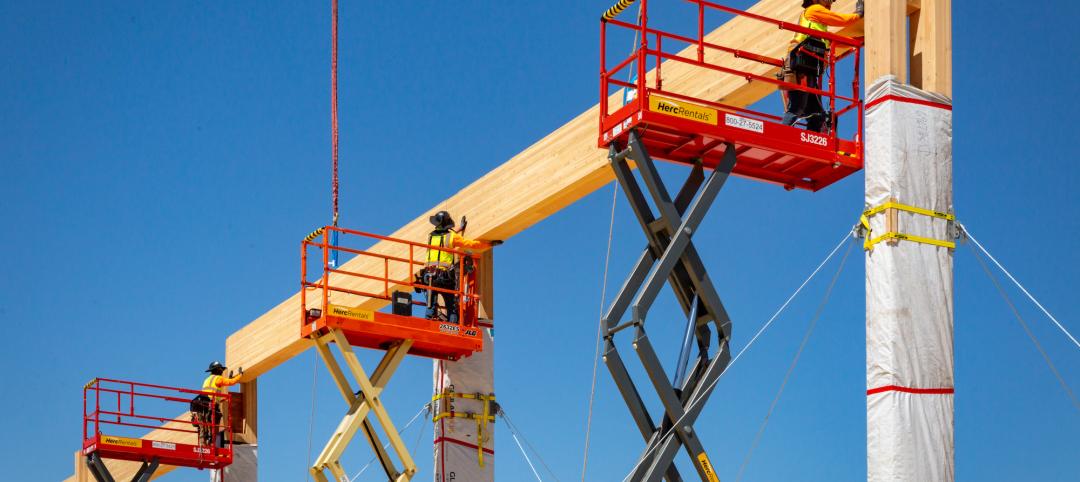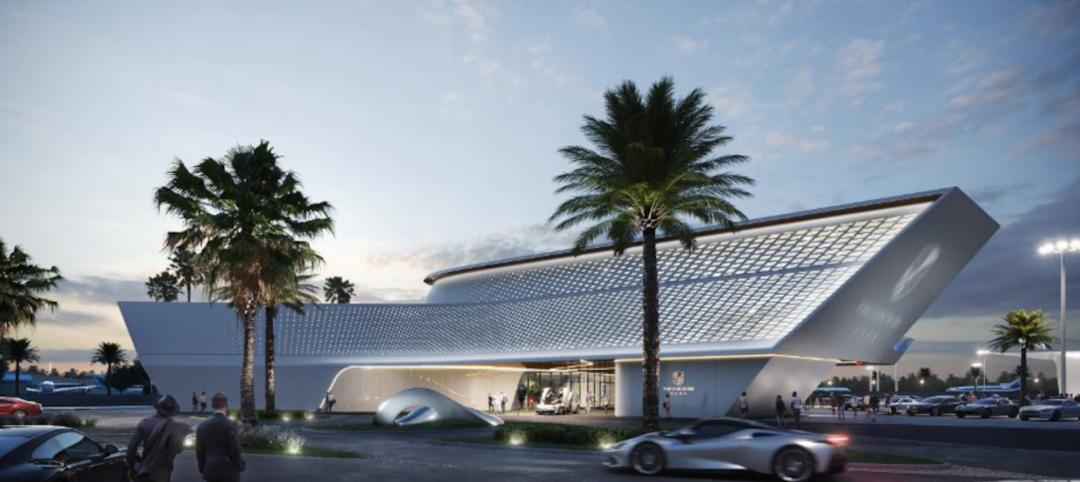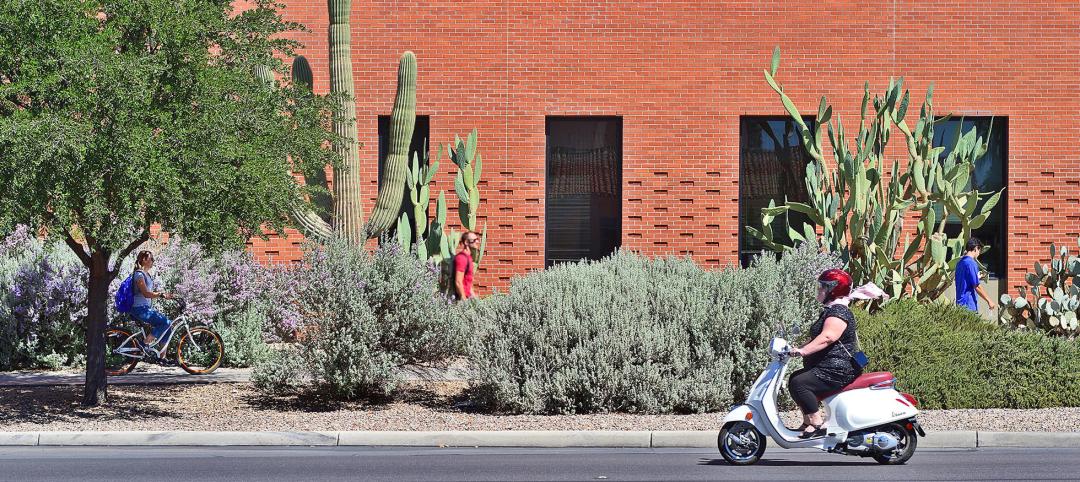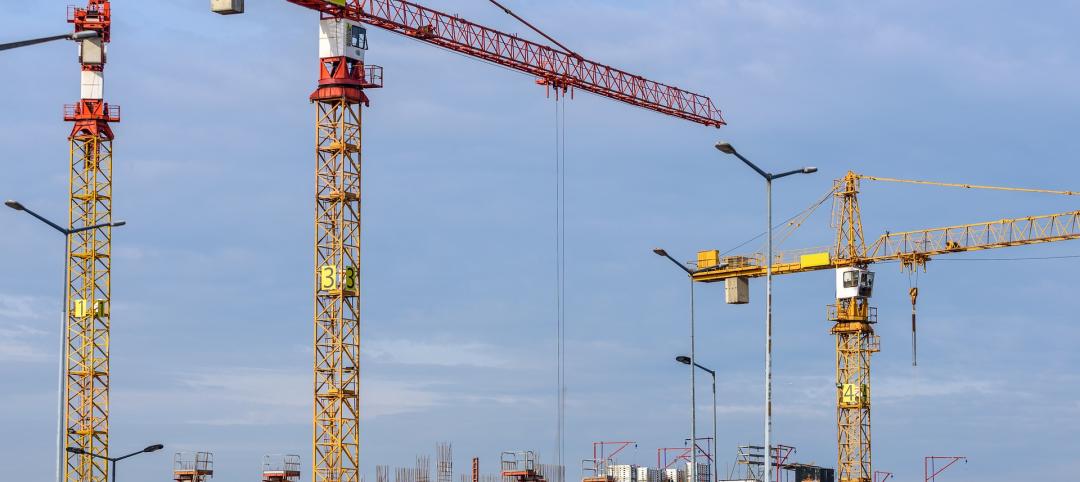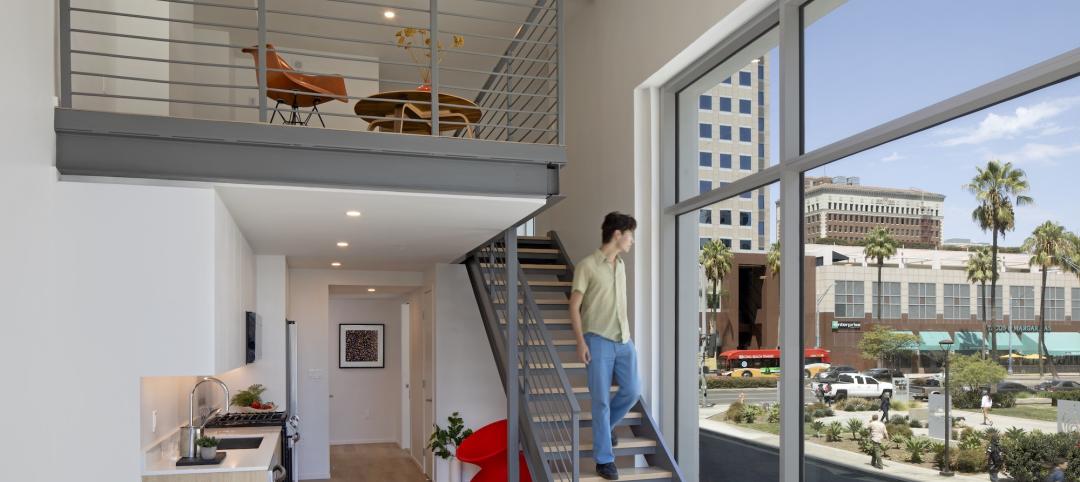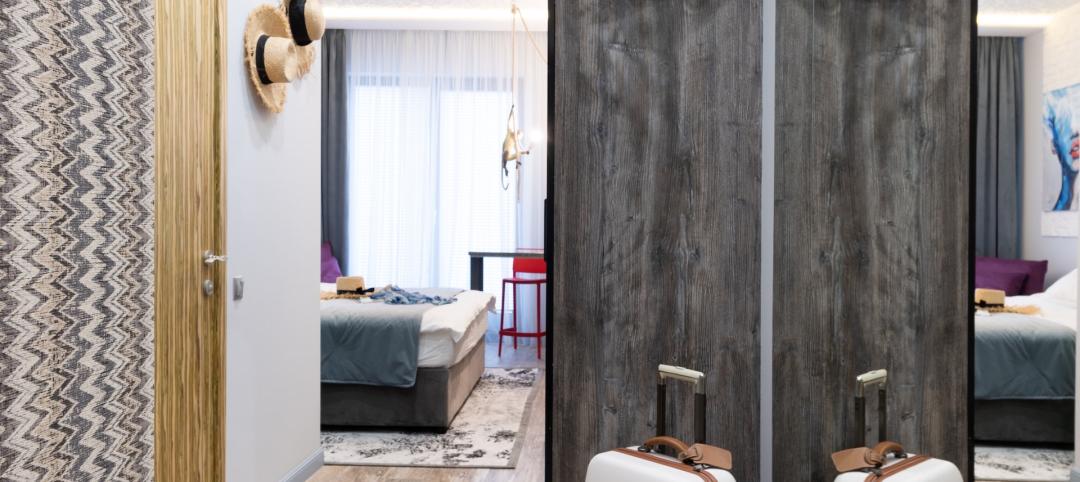Destination Food, an open-source technology platform that connects food supply with demand on a local level, was voted the $3,000 Grand Prize winner in Building Design+Construction's first annual Vision U40 Competition. The competition took place last week at BD+C's Under 40 Leadership Summit in San Francisco.
The goal of the competition was to develop and present innovative solutions for today's pressing social, economic, technical, and cultural problems related to the built environment. Fifteen teams participated in the Vision U40 competition. Each team had just 90 seconds to pitch their concept to the entire group, who voted for their top five.
Here are the five winning teams (click here to see all 15 concepts):
1. Destination Food ($3,000 grand prize winner)
Problem: More than 23 million Americans live without access to affordable, nutritious food. Making things worse, 40% of the food in the U.S. goes to waste.
Solution: Destination Food is an open-source technology platform that connects food supply with demand in a simple, convenient, and affordable way. The app includes a database of profiles and ratings for growers, GPS mapping for connecting consumers to the closest food suppliers, and a scheduling tool for setting up deliveries.
Team:
Cynthia Dubberley, Architect, Eskew + Dumez + Ripple, New Orleans
Christina Weber, Business & Community Development, DIRTT Environmental Solutions, San Francisco
Tyler Krehlik, Architect, SmithGroupJJR, San Francisco
Kelly Dubisar, Architect, Gensler, San Francisco
2. The Kids Are Alright ($500)
Problem: The younger generation prefers to stay inside, whether in the classroom or on the couch. Additionally, parents are missing out on sharing the same learning opportunities their children have.
Solution: Create a Foursquare-type mobile app that, instead of pulling up nearby restaurants, provides educational information based on your current location—from details on the oak tree in your backyard to the history of the landmark building in the center of town. The app encourages kids and their parents to interact with and learn about their surrounding environment.
Team:
Beatrice Tang, Associate Principal, Callison, Seattle
David Monroe, Assistant Project Manager, Balfour Beatty, Dallas
Lauren Smith, BIM Manager, S.M. Wilson & Co., St. Louis, Mo.
3. F.A.B.R.I.C. ($500)
Problem: "Unsocial" media has unraveled the fabric of our neighborhoods. How do we encourage people to get outside and interact and connect with their neighbors and communities?
Solution: This digitized sidewalk encourages people to get outside and weave back into their communities. F.A.B.R.I.C. (short for "future, active, bio-optic, responsive, inter-community" sidewalk) features virtual, interactive games, energy generation, social spaces, and an associated mobile app that, for instance, will alert users when a friend is nearby.
Team:
Elliott Disney, Project Engineer, Southland Industries, Union City, Calif.
Greg Hadsell, Associate, HDR Architecture, San Francisco
Susie Westrup, Sustainability Specialist, Balfour Beatty, Dallas
Nathan Ducote, Project Manager, Balfour Beatty, Dallas
4. WellBOX ($500 - tied for fourth place)
Problem: During the next 20 years, 970 million people will be added to third-world countries. These areas lack access to critical healthcare services and clean water.
Solution: The WellBOX is a portable health clinic that can be dropped into any region of the world to provide clean drinking water and healthcare services and education. The self-sustaining unit will be powered by solar panels and will tap into a local well to provide water filtration. The modular structure will come equipped with tele-medicine equipment, allowing doctors to diagnos remotely.
Team:
Emily Guglielmo, Senior Structural Engineer, Martin/Martin, Larkspur, Calif.
Candace Small, Architect, VOA Associates, Chicago
Vincent D'Ambrosio, Senior Vice President, Hill International, Marlton, N.J.
Chris Hermreck, Project Manager, JE Dunn Construction, Kansas City, Mo.
4. Internext ($500 - tied for fourth place)
Problem: The digital information world offers us instantaneous, universal access, but inundates us with data in a constant, overwhelming stream. As a result, our connections to others and our surrounding community are becoming less meaningful. We've lost our sense of place.
Solution: Internext filters when and where you receive specific digital information based on rules you set, helping you prioritize your life following preferences that reflect your values. Want to spend more time with your family? Set a rule that holds all email after 6 p.m. on workdays. Want to connect with fans of your favorite team while on vacation? Let Internext find the popular hangouts.
Team:
Dace Campbell, Customer Success Manager, Autodesk, Shoreline, Wash.
David Mayman, Architect, Gensler, San Francisco
Craig Chinn, Associate Principal, KTGY Group, Irvine, Calif.
Molly Engelbert, Assistant Project Manager, Balfour Beatty, Dallas
Related Stories
Mass Timber | Jan 27, 2023
How to set up your next mass timber construction project for success
XL Construction co-founder Dave Beck shares important preconstruction steps for designing and building mass timber buildings.
Sports and Recreational Facilities | Jan 26, 2023
Miami’s motorsport ‘country club’ to build sleek events center
Designed by renowned Italian design firm Pininfarina and with Revuelta as architect, The Event Campus at The Concours Club will be the first and only motorsport-based event campus located within minutes of a major metro area.
Student Housing | Jan 26, 2023
6 ways 'choice architecture' enhances student well-being in residence halls
The environments we build and inhabit shape our lives and the choices we make. NAC Architecture's Lauren Scranton shares six strategies for enhancing well-being in residence halls.
K-12 Schools | Jan 25, 2023
As gun incidents grow, schools have beefed up security significantly in recent years
Recently released federal data shows that U.S. schools have significantly raised security measures in recent years. About two-thirds of public schools now control access to school grounds—not just the building—up from about half in the 2017-18 school year.
AEC Tech Innovation | Jan 24, 2023
ConTech investment weathered last year’s shaky economy
Investment in construction technology (ConTech) hit $5.38 billion last year (less than a 1% falloff compared to 2021) from 228 deals, according to CEMEX Ventures’ estimates. The firm announced its top 50 construction technology startups of 2023.
Sports and Recreational Facilities | Jan 24, 2023
Nashville boasts the largest soccer-specific stadium in the U.S. and Canada
At 30,105 seats and 530,000 sf, GEODIS Park, which opened in 2022, is the largest soccer-specific stadium in the U.S. and Canada. Created by design firms Populous and HASTINGS in collaboration with the Metro Nashville Sports Authority, GEODIS Park serves as the home of the Nashville Soccer Club as well as a venue for performances and events.
Concrete | Jan 24, 2023
Researchers investigate ancient Roman concrete to make durable, lower carbon mortar
Researchers have turned to an ancient Roman concrete recipe to develop more durable concrete that lasts for centuries and can potentially reduce the carbon impact of the built environment.
Architects | Jan 23, 2023
PSMJ report: The fed’s wrecking ball is hitting the private construction sector
Inflation may be starting to show some signs of cooling, but the Fed isn’t backing down anytime soon and the impact is becoming more noticeable in the architecture, engineering, and construction (A/E/C) space. The overall A/E/C outlook continues a downward trend and this is driven largely by the freefall happening in key private-sector markets.
Multifamily Housing | Jan 23, 2023
Long Beach, Calif., office tower converted to market rate multifamily housing
A project to convert an underperforming mid-century office tower in Long Beach, Calif., created badly needed market rate housing with a significantly lowered carbon footprint. The adaptive reuse project, composed of 203,177 sf including parking, created 106 apartment units out of a Class B office building that had been vacant for about 10 years.
Hotel Facilities | Jan 23, 2023
U.S. hotel construction pipeline up 14% to close out 2022
At the end of 2022’s fourth quarter, the U.S. construction pipeline was up 14% by projects and 12% by rooms year-over-year, according to Lodging Econometrics.



